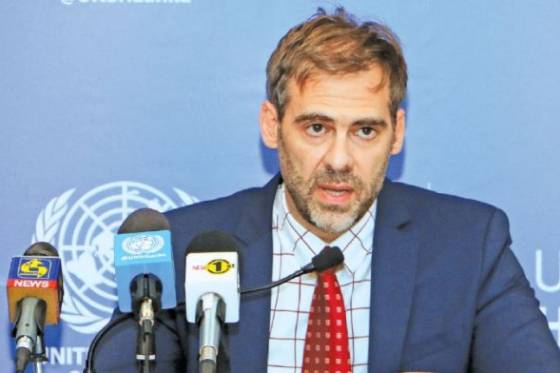A UN expert has noted concerns on the Value Added Tax (VAT), in a report to be presented to the UN General Assembly in October.
The UN Independent Expert on foreign debt and human rights, Juan Pablo Bohoslavsky, said in the report that in Sri Lanka, there are concerns at the significant rise in the value added tax, given that the brunt of such taxes is often borne by the poorest.
Juan Pablo Bohoslavsky made his observations on Sri Lanka based on a visit he undertook to the country last year.
In his report Bohoslavsky says Austerity measures imposed by international financial institutions such as the IMF, regularly cause violations of human rights.
“Even though austerity can be a useful tool of administration against the squandering of resources, it is essential to keep in mind that austerity impacts different social groups in very different ways, especially the most vulnerable and marginalised,” says Bohoslavsky.
He says although States are the main guarantors of human rights, international financial institutions can also be held responsible if they are complicit in prescribing policies with probable negative impacts on human rights.
“If international financial institutions can be made responsible for the preventable damage caused by a dam built with their funding, why should they not be responsible for the preventable human rights harm to people caused by regressive economic policies?”
Bohoslavsky said it was worth noting that the austerity measures promoted by the IMF and other international financial institutions were not for everyone, as they did not restrict payment of public debt to national and international foreign creditors. On the contrary, the restrictive monetary policies increase interest payments. “It is austerity for the poor, not for creditors”, he highlighted.
The Independent Expert extensively argues in his report that there is a solid legal basis on which to say that, in principle, austerity policies during times of recession are incompatible with obligations to guarantee the enjoyment of human rights. (Colombo Gazette)

